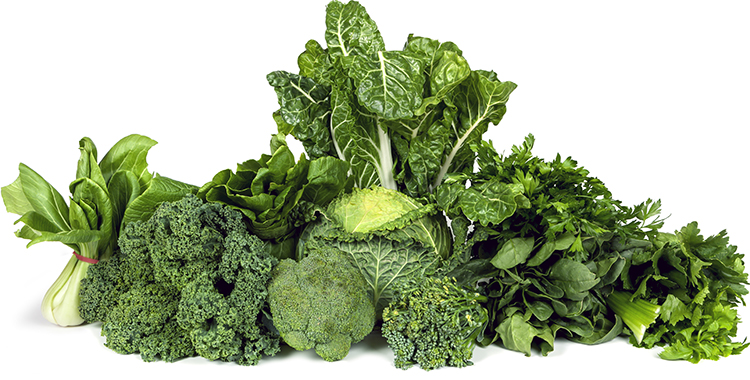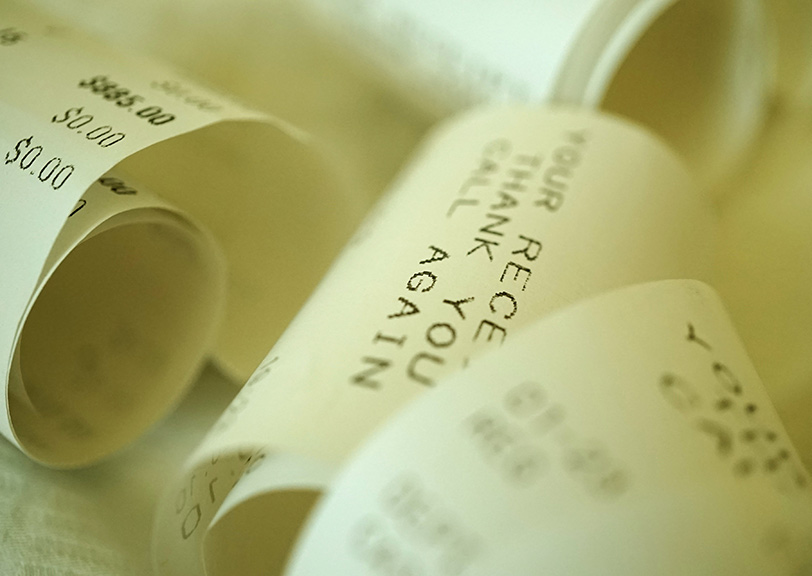ENTER YOUR EMAIL TO RECEIVE OUR WEEKLY NEWSLETTER
Put Bone Health on your Radar Screen
Osteoporosis a painful reality for millions of women. Know your risk factors and take action. Improving your diet is important: “Eat something green every day.”
By Georgetta Lordi Morque

UPDATED FEB. 9, 2022
A few months ago, I crossed the line—from osteopenia to the beginning stages of osteoporosis, the debilitating bone disease. I’m certainly not alone. According to the Centers for Disease Control and Prevention, osteoporosis affects almost one in four women aged 65 and over in the U.S.
Osteoporosis is a common yet serious disease that occurs when the body loses bone mineral density causing the bones to weaken and eventually fracture or break. This results in severe pain and immobility. Approximately one in two women and up to one in four men over 50 will break a bone due to osteoporosis, according to the National Osteoporosis Foundation (NOF). A woman’s risk of fracture is equal to her combined risk of breast, uterine and ovarian cancer, the NOF reports.
Osteoporosis is considered a “silent disease,” because there are no real symptoms and it is believed that many women are walking around not even knowing that they have osteoporosis, until, that is, they fracture a bone. How do we get a handle on this disease and what’s the best approach to managing bone health as we age?
I spoke with Joseph Lane, MD, Chief of Metabolic Bone Disease Service at Hospital for Special Surgery, for advice. The first question I posed concerned bone density screenings which according to industry guidelines should start at age 65. “That’s if you are a perfectly healthy 65-year-old woman,” said Dr. Lane. Those with risk factors would benefit from earlier testing. These factors include family history, low body weight—women who wear a size 2 or have a BMI (body mass index) under 18.5—eating disorders, menopause, long term steroid use or diseases that can cause osteoporosis, such as rheumatoid arthritis, reduced activity levels, illnesses or fractures. “Talk to your internist if you think you may be at risk and get a baseline screening,” advised Dr. Lane.
Calcium of course is important for healthy bones, but what’s the best way to get it? “Number one is to improve your diet,” said Dr. Lane. “Eat something green every day, not peas, but leafy greens.” He also recommends building rich dairy products into your diet, such as yogurt and almond milk. “Then find out your calcium levels.” A 9.5 mg/dl (milligrams per deciliter) range is the safest, according to Dr. Lane. “If it’s below 9, you’re not taking enough calcium. If it’s too high, you could be at risk for kidney stones.” Some studies have linked calcium supplements to kidney stones, however calcium citrate, which Dr. Lane, prefers, is less likely to cause kidney stones and more likely to be absorbed.
Vitamin D is essential in the absorption of calcium, so checking D levels is also important. “You don’t need much—20 ng/ml (nanograms/milliliter) is the magic number,” said Dr. Lane. Sunlight can help the body produce Vitamin D, yet most people don’t spend a lot of time outdoors year-round and wearing sunscreen can prevent the production of Vitamin D. “You have to get pink,” said Dr. Lane, noting that women with darker skin cannot reach D levels through the sun. There aren’t many foods with high Vitamin D, so Dr. Lane recommends taking a Vitamin D 3 supplement. In the hospital’s lab study of women aged 40 through 60, balance was improved by those who took Vitamin D, which proved the important role D also plays in muscle strength and function.
Exercise is a critical factor for bone health, particularly weight-bearing exercise. “You won’t change your bone density, but you’ll improve the quality of the bone,” said Dr. Lane. And exercise can also help improve balance which in turn can help prevent falls and fractures. Rather than just walking on a treadmill, Dr. Lane advises engaging in a variety of exercise such as Tai Chi and Barre classes in addition to walking and walking up stairs, which is also helpful. “Play sports and have fun. If it’s not fun, you won’t do it.” Overall, Dr. Lane is a proponent of a healthy lifestyle of eating good food, being active and maintaining a good weight. “Aim for your marriage weight—don’t go below it.”
Sadly there is no way to reverse bone mineral loss, but good practices can help maintain the bone density that you have and delay or prevent the onset of the disease. For me, my bone density screening score was my wake-up call. Don’t wait to take charge of your bone health. For important resources, visit the National Osteoporosis Foundation and American Bone Health which also has a Bone Health Hotline, 888-266-3015.
Bone Density Screening
DEXA (Dual Energy X-Ray Dual Absorptiometry) is a scan to measure bone mineral density. A T-score of -1 to -2.5 indicates weak bones yet not at risk for fracture (osteopenia). A T-score of -2.5 or lower indicates osteoporosis.
Hip Fractures
24 percent of hip fracture patients age 50 and over die in the year following the fracture, and six months after a hip fracture, only 15 percent of patients can walk across a room unaided. –National Osteoporosis Foundation
Calcium Rich Foods
According to American Bone Health, 75% of Americans don’t get enough calcium. Some good choices are broccoli, kale, bok choy, sesame and chia seeds, almonds, sardines, canned salmon with bones, cheese, milk and yogurt. If you do not get enough calcium through foods or supplements, the body will take the calcium it needs from your bones. Caffeine and alcohol can interfere with calcium absorption.
Medical Practices Treating Osteoporosis in NYC
Osteoporosis and Metabolic Bone Health Center
Hospital for Special Surgery, HSS Ambulatory Care Center,* 475 East 72nd Street, NYC 212-606-1744 for a bone density appointment. For an appointment with a physician, call the physician’s office directly. *patients can also be seen at other HSS locations
NYU Langone Osteoporosis Center
301 East 17th Street, Suite 1101, NYC 212-598-6367
Columbia University Medical Center
Division of Endocrinology, 180 Fort Washington Avenue, Harkness Pavilion, Room 904, NYC 212-305-2663
Metabolic Bone Disease and Osteoporosis Service at Weill Cornell Medical Center
New York Presbyterian/Weill Cornell Medical Center, 212-746-4500
Mount Sinai Doctors Endocrinology and Diabetes Associates
317 East 17th Street, 7th Floor, NYC 212-420-4412; check for more locations.
1111 Amsterdam Avenue, Babcock Building, 10th Floor, NYC, 212-523-8672
Mount Sinai Doctors Multispecialty Physicians Upper West Side
638 Columbus Avenue, NYC 212-523-8672
Mount Sinai Doctors West 60th Street
36 West 60th Street, NYC 212-523-8672; check for more Mount Sinai outpatient locations.
Park Avenue Endocrinology & Nutrition PLLC
103 East 75th Street, NYC 212-772-7628
Lenox Hill Endocrinology & Metabolism
100 East 77th Street, Suite 8B, NYC 212-434-2000
Specialized Programs for Osteoporosis
OsteoStrong, 22 East 21st Street, 4th floor, NYC 212-796-7887; 30 East 60th Street, 23rd floor, NYC 917-451-3183; check for more locations.
Called the “Ultimate Bio Hack,” OsteoStrong is building centers across the country that are not gyms or medical facilities, but rather specialized studios with unique technology designed to help build skeletal strength, improve bone density, posture and balance and reduce joint pain.
Books:
There haven’t been many recent books about osteoporosis except for “Dexascan: Beyond Missed Opportunity” by K.J. Kidd, who details her personal experience with the crippling disease which she says general practitioners are not taking seriously enough.
. . . . . . . . . . . .
Georgetta Lordi Morque is an award-winning freelance writer and public relations consultant who focuses on sports, fitness and health.
You may enjoy other NYCitywoman articles by Georgetta Lordi Morque:
Moving Towards Wellness Through Tai Chi
Second Careers: How Art Changed a Life
Is Snoring Compromising Your Health?
Facial Acupuncture for Skin Rejuvenation
Collagen: Maintaining A Youthful Complexion
Stand Up! The Road to Better Posture











